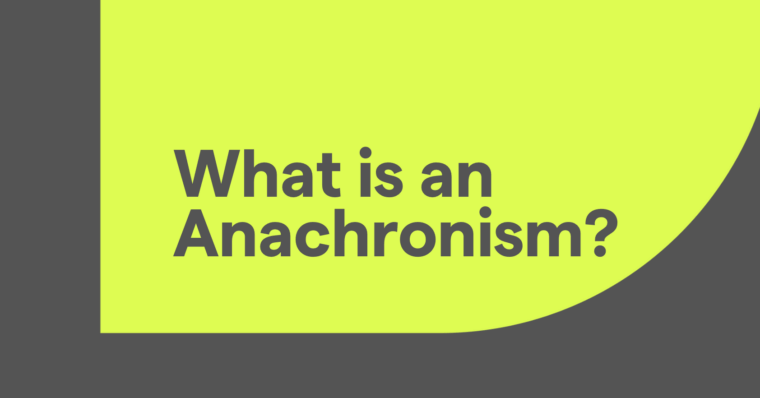
Whether you’re writing an analytical essay, a reflective essay, or a compare-and-contrast essay, you are generally focused on one central theme. An essay topic is the subject—it’s what an essay is about. Essay topics can be broad or narrow, simple or complex—every essay has a topic. Determining your topic is generally the first step in writing an essay.
What is an essay topic?
Essay topics are the broad subjects essays discuss. The purpose of an essay topic is to shape your essay. By defining your essay topic, you determine what you’ll explore in your writing, how you will investigate the topic, the elements you’ll cover (and which you’ll leave out), and the sources you will use to support your thesis statement.
For example, you might write an argumentative essay in support of requiring all students at your university to take a media literacy course during their first year. This potential new requirement would be your essay topic.
Sometimes, your instructor will assign an essay topic. When this is the case, you can jump right to thinking up ways of exploring that topic and developing your thesis statement. Other times, you will need to determine your own essay topic—and your instructor might or might not provide guidance in choosing the topic. When you’re on your own with determining ideas for an essay topic, there are a few different strategies you can use:
- Freewriting. Start with the type of essay you’ve been assigned (analytical, compare-and-contrast, personal, etc.) and let your mind wander. Write down any questions that come to mind, insights you have, observations about these questions or insights, and points that interest you.
- Researching others’ thoughts about the subject. This strategy works when you have a general idea of the subject you’d like to write about. You can familiarize yourself with the discourse surrounding that subject and read what others have said about it. Getting familiar with others’ writing can inspire you to add your take to the existing body of knowledge surrounding the subject.
- Answering the question you want to know the answer to. Think about the type of essay you plan to write and questions you would find satisfying to have answered in essay form.
- Finding gaps in the existing knowledge about your subject. This piggybacks on the strategy of exploring what others have said about it—what hasn’t been said? This could be your opportunity to write a thought-provoking original essay about your topic.
You can use these strategies for other kinds of writing, too, like creative writing and blog posts.
How to come up with an essay topic
Before you start exploring potential essay topic ideas, think about the kind of essay you are planning to write. Strong essay topics vary between types, so make your essay’s goal a significant part of choosing a topic. Keep the following in mind for each of the following types of essays:
Argumentative
An argumentative essay needs to support an argument. It also needs to demonstrate the flaws in a counter-argument. When you’re tasked with writing an argumentative essay, generate essay topics that have clear “sides” that can be supported and defended by discussing specific pieces of evidence. Choose an issue you can support through strong evidence, such as likely repercussions for changing the legal voting age.
Compare-and-contrast
In a compare-and-contrast essay, you need to show the similarities and differences between two subjects. Kick-start your topic development (or brainstorm if it’s a collaborative project) by thinking about subjects you can compare and contrast, such as the themes in two poems. Think about the specific angles you can take on the subjects you’ll focus on, and consider the comparisons you’ll make in your writing.
Political
A political essay is an essay that examines present social and political challenges and proposes solutions to them. For example, a political essay might propose improvements to the housing market in the United States. To generate essay topics for a political essay, think about the issues that affect you or people you know, or historical trends and current events. You might have a unique perspective on proposed legislation or present political challenges, or you might simply provide a fresh voice in this discourse. Another strategy is to read the news and find a topic that’s trending, relevant, and something you have the knowledge and/or resources to write a strong essay about.
Analytical
An analytical essay drills down to the components present in a work or an issue and addresses these components to reach conclusions. For example, your analytical essay topic might be how online classes have changed our relationship to education forever. As you explore essay topics for an analytical essay, think about something that interests or confuses you. In your analytical essay, you engage with the topic by questioning it and breaking it down, so choose a topic that’s got room to dive deep.
Personal
A personal essay is a reflective piece of writing that explores and discusses a topic from your own life. Unlike other kinds of essays, which support their positions through objective references to facts, statistics, scholarly insights, and other written works, a personal essay discusses its author’s own thoughts and feelings. There is no pressure to be objective in a personal essay; think of it as a chapter from your autobiography or a diary entry. To come up with essay topic ideas for a personal essay, think about events and experiences that have left a lasting impression on you.
Persuasive
Similar to an argumentative essay, a persuasive essay aims to persuade the reader to support a specific action or stance. The difference is that in a persuasive essay, the author’s goal is to persuade the reader to agree with their position, while an argumentative essay aims to show the reader why its thesis statement is objectively true. Strong persuasive essay topics are topics that are trending and divisive, such as the merits of dropping SAT scores from university admissions decisions.
Essay topic vs. thesis statement
An essay topic isn’t the same as its thesis statement. However, the two are closely related. An essay’s thesis statement concisely states the author’s position on the essay’s topic. In other words, the thesis statement narrows the topic down to a specific statement that the author then explores, analyzes, and—depending on the type of essay—defends in the body paragraphs.
Here are a few examples of essay topics and accompanying thesis statements:
Topic: Changing the legal voting age
Thesis statement: When nations lower the legal voting age to 16, youth civic participation increases. To combat low voter turnout among young adults, the United States should reduce the voting age to 16.
Topic: Does exercise matter if you eat a healthy diet?
Thesis statement: Research shows that while diet plays a significant role in an individual’s overall health and fitness, regular exercise plays a crucial role in strengthening bones and muscles, maintaining weight, and reducing an individual’s risk of disease.
Similarly, an essay topic is not the same as an essay title—but there is a relationship between an essay’s topic and title. An essay title should make its essay’s topic clear to the reader.
30 essay topic examples
Persuasive essay topics
- The harms of single-use plastic
- Planned obsolescence
- Pineapple on pizza
- How can we be better neighbors?
- Ways to make writing easier for high school students
Personal essay topics
- My grandmother’s cooking
- My favorite dinosaur
- A pivotal trip I took
- My reaction to reading my own published writing
- Why I’ll never have another pet pig
Argumentative essay topics
- Should cars be banned from downtown?
- Why do we get addicted to social media?
- Should the library be open 24/7?
- Should high schools eliminate summer vacation?
- Are we too apathetic about the amount of data we share?
Analytical essay topics
- Themes of love in Frankenstein and House of Leaves
- Grammar’s role in communication
- Information retention when writing notes by hand
- Dogs as symbolism in Wuthering Heights
- Music education in elementary schools
Political essay topics
- The Electoral College’s validity in modern elections
- Student debt forgiveness
- Strategies for increasing voter turnout
- Potential outcomes of redrawing voting districts
- What if we let AI govern us?
Compare and contrast essay topics
- For commuters, are trains or buses a more environmentally friendly option?
- Vegan versus vegetarian diets
- A comparison of the writing styles of Toni Morrison’s early and later works
- Qualitative versus quantitative data in sociology
- The Handmaid’s Tale television show versus the original novel
Essay topics FAQs
What is an essay topic?
An essay topic is a subject area about which an essay is written. An essay topic can be fairly broad or quite narrow.
What’s the purpose of an essay topic?
The purpose of an essay topic is to give the author something to discuss in their writing. An essay topic is what an essay is “about,” giving the author a subject to explore, analyze, discuss, defend, or describe.
What’s the difference between an essay topic and a thesis statement?
An essay topic is much broader than a thesis statement. A thesis statement summarizes the essay author’s position on the essay’s topic or a specific aspect of the essay’s topic.
What are examples of strong essay topics?
- A comparison of the writing styles of Toni Morrison’s early and later works
- Vegan versus vegetarian diets
- Why do we get addicted to social media?






